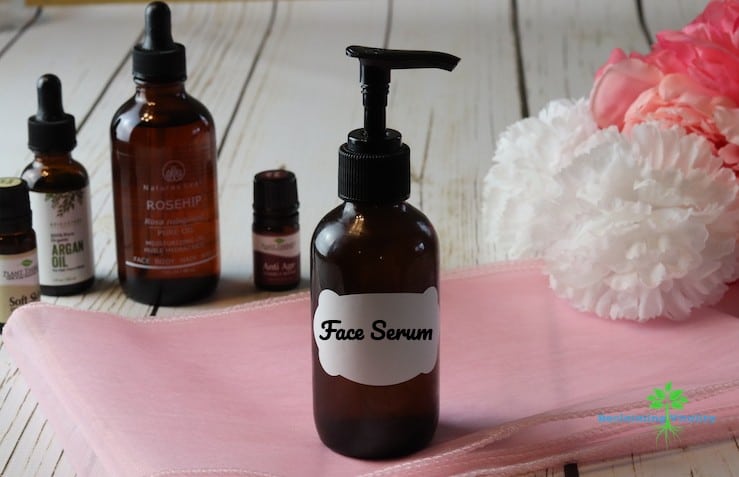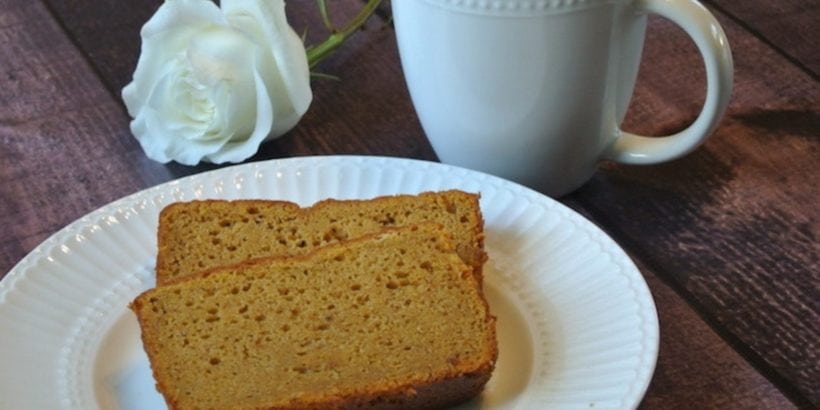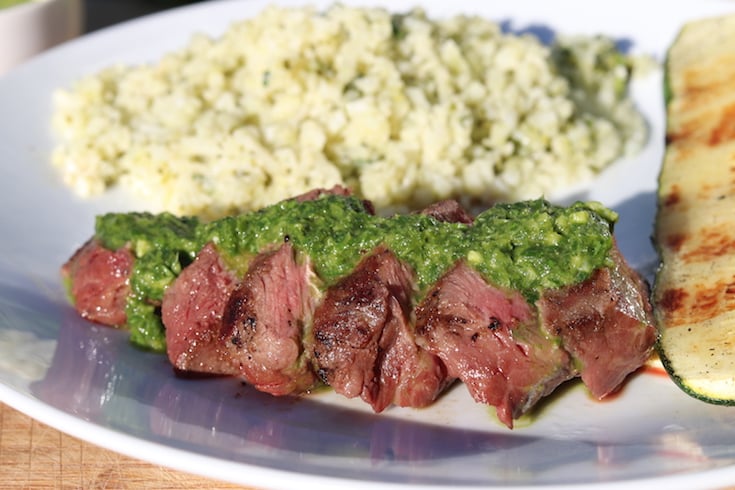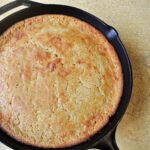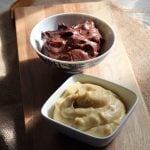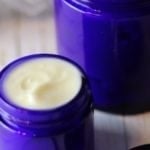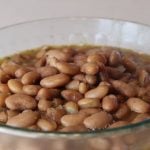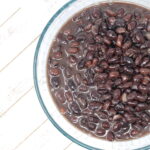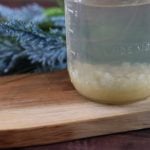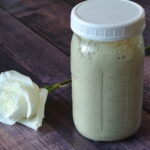Sprouts are one of my favorite ways to get extra nutrients into my diet! They are tasty, simple to make, and jam-packed with nutrients, many of which are cancer-fighting. I add them to salads, sandwiches, wraps, and even soups (such as Mung bean sprouts for Pho). Even if you have no space for a garden, you certainly have space for a jar to sprout these!
Why sprout at home?
- Inexpensive: A small pack of organic sprouts at the store is anywhere from $5 to $8. Two tablespoons of sprouts will get you a whole quart full for pennies!
- Less risk of mold/contamination: Sprouts are at risk of being contaminated (this is mostly Alfalfa and Mung beans). By sprouting your own, there is much less risk of contamination. (Especially if you buy organic seeds). If sprouts are not stored completely dry, they can mold. Often at the store, the plastic box they are stored in develops condensation.
- Different varieties of sprouts: The store typically just has Alfalfa or Clover sprouts. Every once in a while you will see Broccoli sprouts, which are the king of sprouts. At home, you can choose sprouting mixes. I have a regular mix that has Broccoli, Alfalfa, and Clover and a “spicy” mix that contains Clover, Alfalfa, and Radish. This mix isn’t actually spicy, it just has a bit of a peppery taste from the Radish sprouts. Yum! You can get sample packs of sprout mixes as well. At specialty grocery stores, there are single packs of sprouts, but they are small and usually expensive.
How to Sprout seeds:
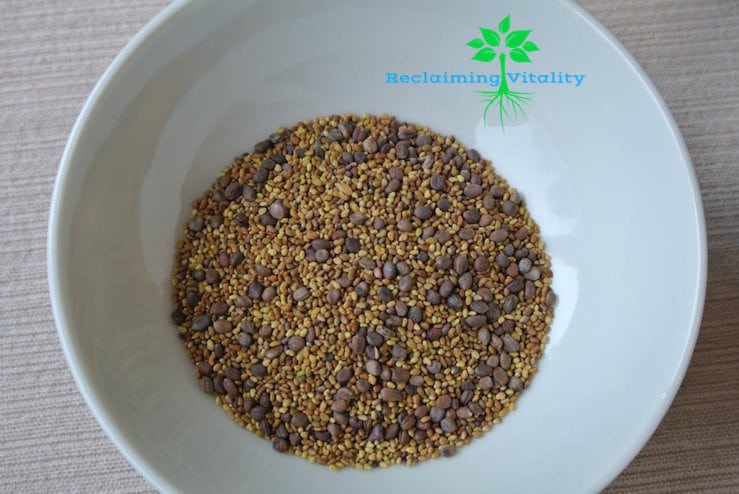
You will need:
- A mason jar
- A sprouting lid
- 2 tablespoons of Sprouts
- Filtered water
- Be sure to have clean hands, and a sterilized jar, and utensils when sprouting.
- Soak your seeds in filtered water for 10 minutes. Strain them and add more filtered water.
- Soak again. (For soaking times, see below.) Strain again.
- Turn upside down and really get the water out! Put the jar at an angle in a dark place. I use a paper plate for this( it helps catch any leftover water). I wedge it into a cupboard.
- 2 to 3 times a day, rinse your sprouts and turn the jar over.
- Most sprouts are ready 48-96 hours later. Give them a taste at 48 to be sure. It will depend on the variety of sprouts you chose. (See below for more information.)
- To separate the sprouts from the seed hulls, place in a large bowl of filtered water. Pull apart sprouts from seeds. (I like to use my fingers.)
- If you have a salad spinner, it can be helpful to get rid of the water. If not, dry them with paper towels.
- I use a baking tray covered with paper towels to lay the sprouts out and sort the rest of the way.
- These keep for up to 5 days, but are better fresher. Be sure to keep them very dry! Also, keep them dry after sprouting and eat promptly (within the first few days after sprouting) to reduce the possibility of mold. I roll them up in portion sizes into paper towels and then put them in a zip-lock bag.
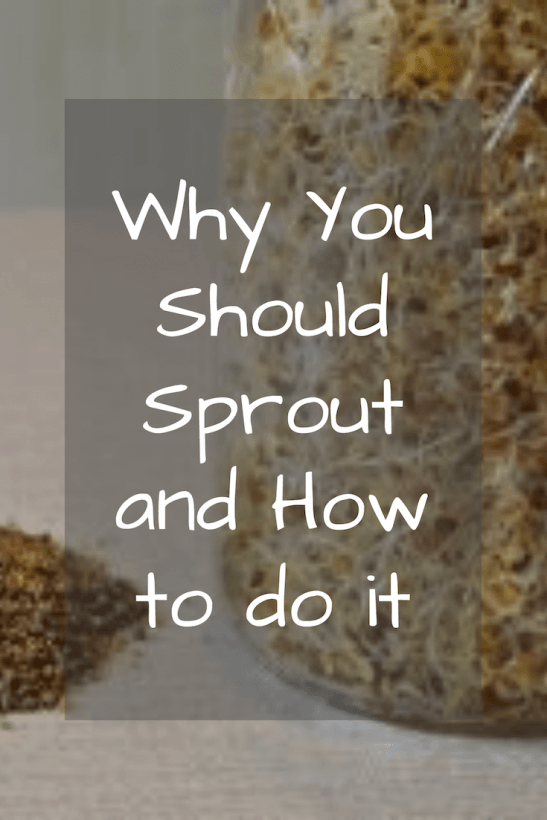
Some common sprout-soaking timelines:
- Broccoli sprouts: Soak for 8 hours; sprout for 2-3 days.
- Alfalfa: Soak 4-8 hours; Sprout for 5 days
- Clover: Soak for 8 hours; Sprout for 5-6 days
- Radish: Soak for 8-12 hours; Sprout for 3-4 days.
- Fenugreek: Soak for 8-12 hours; Sprout for 5-8 days
- Mung: Soak for 8-12 hours; Sprout for 4 days.
Nutritional Benefits of Sprouts:
- Broccoli: These are the champs when it comes to sprouts!! They are loaded with 50 times the amount of sulforaphane as mature broccoli. Sulforaphane is a potent anti-cancer antioxidant. They are also loaded with vitamins A, C, and K, and many minerals. Besides fighting cancer, these sprouts will help protect your heart and lungs.
- Alfalfa: These sprouts contain phytoestrogens to help with PMS and menopause. They contain vitamin C, K, folate, and many anti-aging nutrients, as well as being good for blood sugar control and bone health.
- Clover: Full of antioxidants to detoxify, fight cancer, and help with PMS and menopause. Contains vitamins A, B, C, and K as well as many minerals.
- Radish: Vitamins A, B, C, and
- Fenugreek: This herb is a lymph cleanser! It helps balance hormones, aids digestion, reduces inflammation, supports milk production when breastfeeding, stabilizes blood sugar, and helps with weight loss.
- Mung: Have protein, B vitamins, magnesium, calcium, manganese, and zinc. They boost immunity, fight cancer, help with blood sugar and blood pressure. Can also help with PMS.
Do you eat sprouts? Do you sprout at home? Are you going to try?

